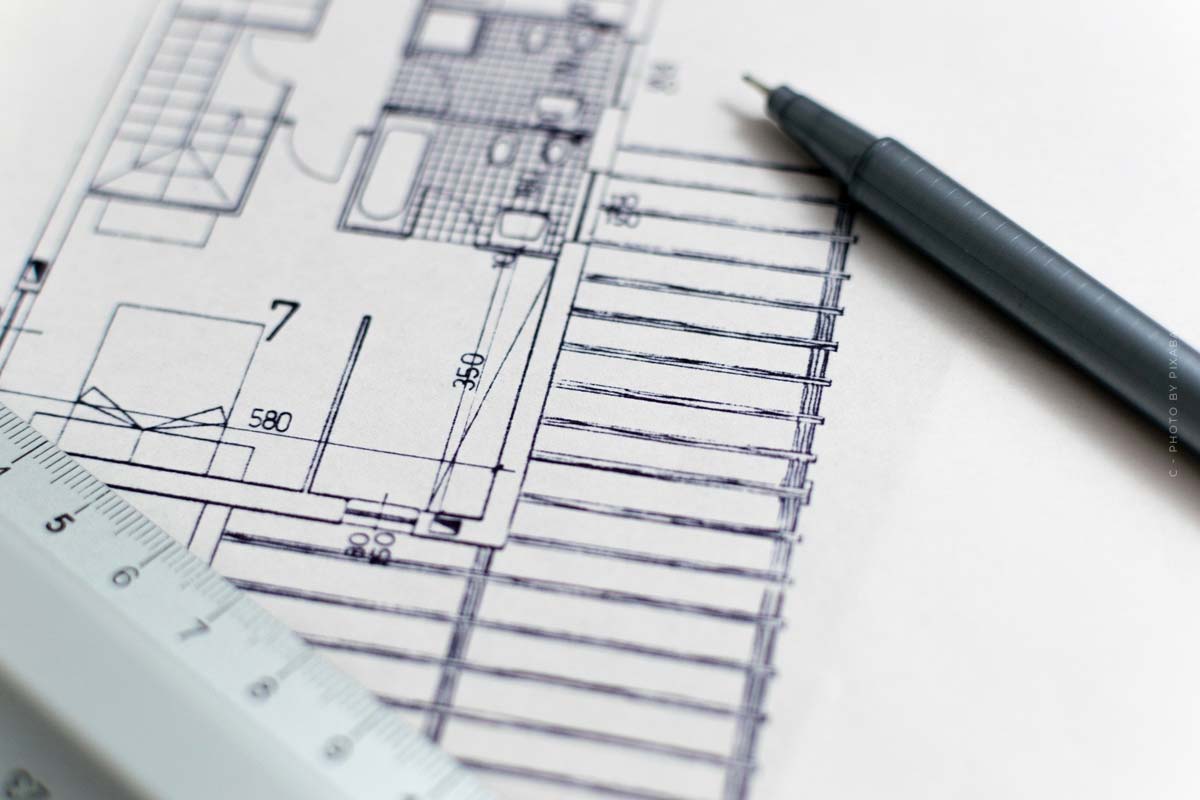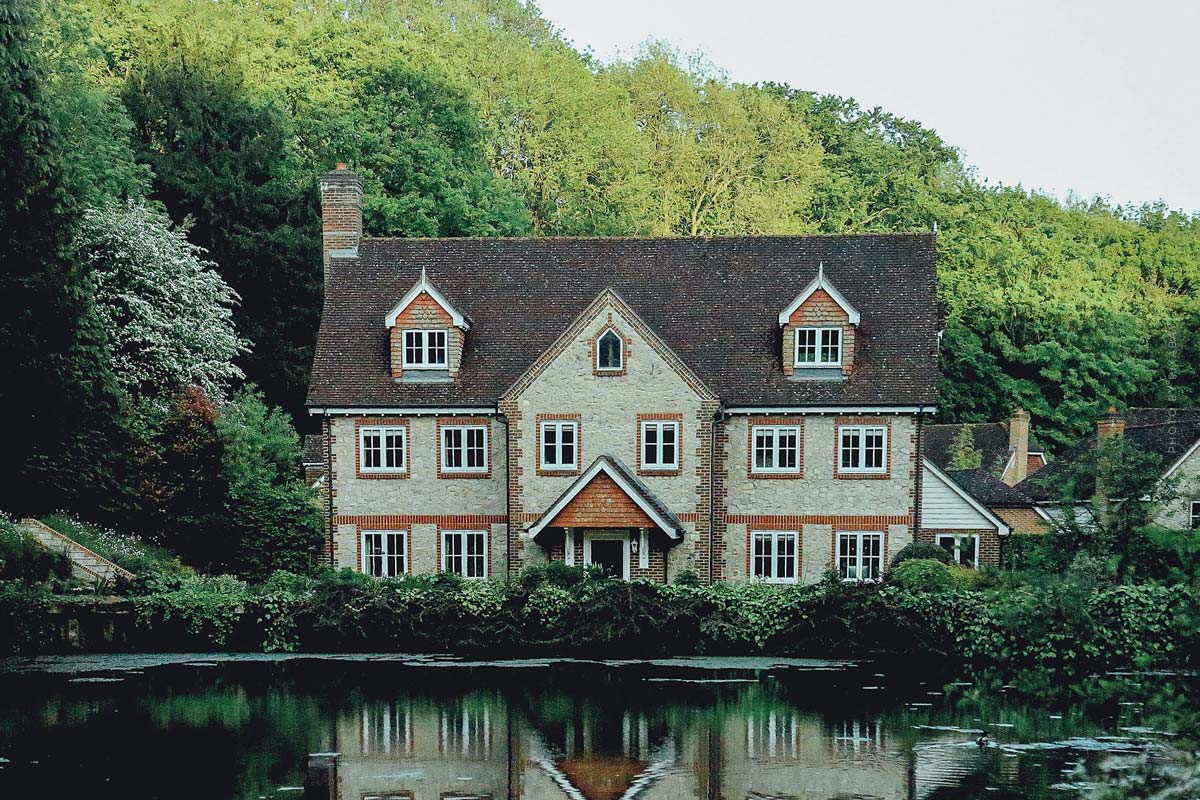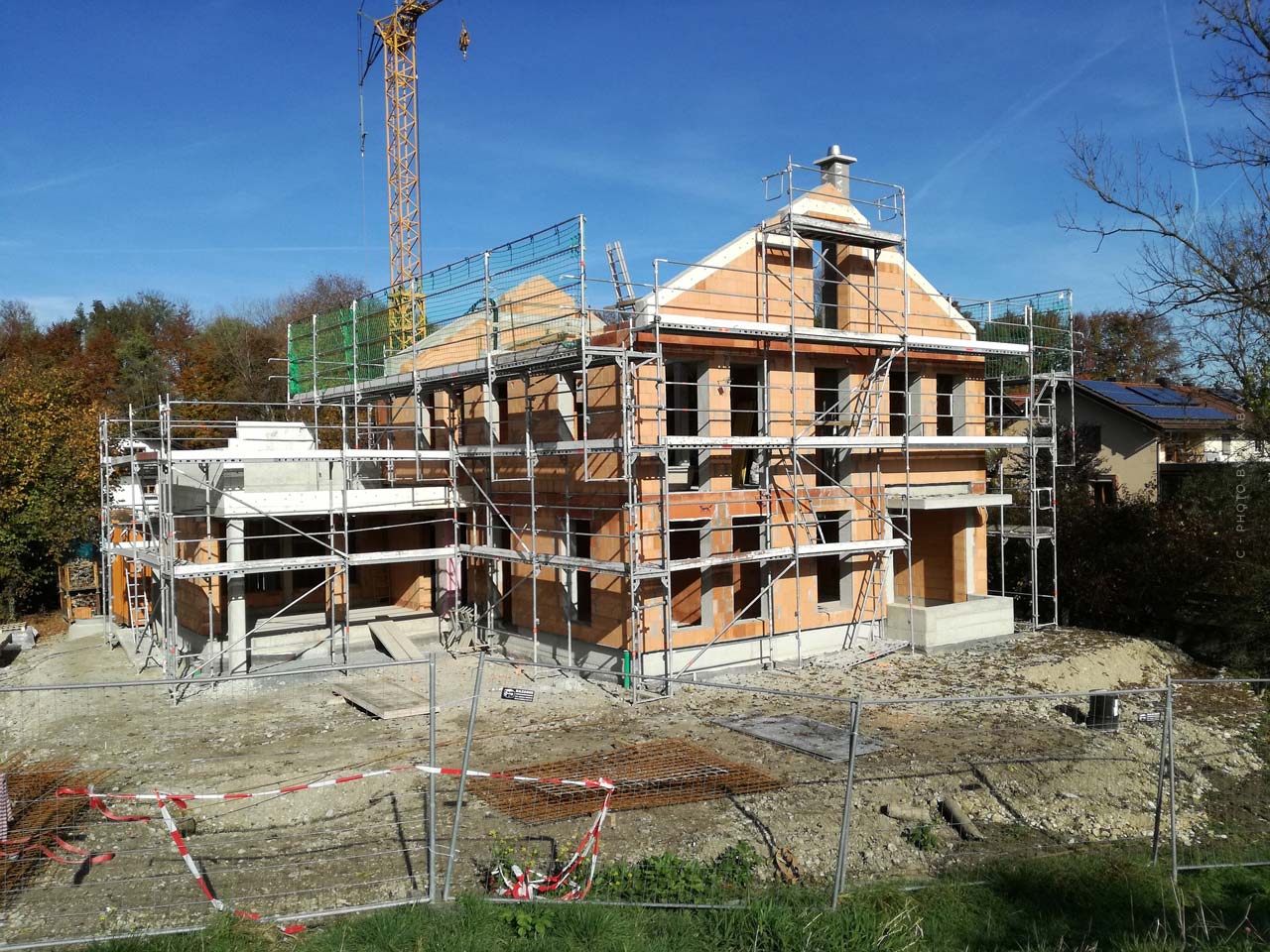Buying a House – Easy Explanation + Step-by-step Guide, Real Estate How-to
Real Estate – We give you an easy-to-understand step-by-step guide for everything you need to know about buying a house. We can give you the full run-down, from A to Z, everything you need to know about buying a house. Tips, secret tricks, where to save money, and more. After reading this, you too will be a pro real estate investor. From taxes to negotiation and re-negotiation, you’ll need no more help after this.
How to Buy a House in USA – A Full Guide
Buying a house is often the first step to financial independence. Whether as a real estate investment for passive income, or as a primary residence. It’s vital to understand the ins and outs, and all the nitty gritty details of purchasing a home. Even if you’ve bought a house before, you should get informed. The more you are in the know about the process of buying a house, the less work your broker, attorney or agent will take, and the m ore you can contribute. Meaning a higher chance that you will find your perfect house, and pay as little as possible for it.
Not looking to buy a house? What about…
Types of Real Estate Investment – What should I do with my House?
Of course, before you buy a house you have to know what to do with it. Or maybe you’re thinking about ways to invest saved money, and are considering buying a house. What could you do with it? Well generally, buying a house means you do one of three things with it. Either you use it as a primary-residence, meaning that you live in the house yourself. You may also rent out the property. Meaning that someone else lives in the property and pays you rent. This is more popular for buying apartments, but can also be done with houses. The last option is to flip it. That means buy it, renovate it at low cost, and sell it for profit.
- Primary Residence
- Rental
- Flip

Decide on your Residence – Type of Home
Of course there are many different types of homes that you can buy. These include Single-Family Homes (i.e. a normal house as you know it), a duplex or triplex, a townhouse, a co-op, etc. These all have their unique advantages and disadvantages, and depending on your needs one will fit better than another.
A full rundown of all your options, from type of residence to what you want to do with your real estate, in our guide
Checklist – 8 Steps to Buying a House
In short, the 5 steps in the process of buying a home are as follows. The first steps are all related to your mortgage, and planning your payments. The final is related to your closing, where many additional costs will come up which you should plan for.
- Save up for the Downpayment
- Find a Mortgage Broker
- Get Mortgage Preapproval
- Get your Team Together: Attorney, Real Estate Agent, etc.
- Start looking at Listings
- Go to Viewings
- Submit an Offer
- Close
When Should I buy a House? Preparation
How do you prepare for buying a house? The following are the steps you should take before even starting the process of buying a house. It is important that it is the right time. The following are timing issues you should take into consideration which may decide whether to wait or buy now.

Salary, Savings, and Career – Your Financial Status
Preparing for buying a house means considerable financial investment! It’s most important to know, before you buy a house, that you won’t be stuck with heavy loans, high interest rates, and drowning in additional payments. You should buy a home when you are financially secure. That means that you have large savings, which may be necessary for unexpected renovations or repairs. You may need to install new heating, or reinsulate your home. These savings will of course be mostly used for your downpayment, which will be a large sum. Additionally, it’s easier to get a better mortgage, and get mortgage pre-approval, when you have a constant salary. Job security is therefore key.
- Savings
- Job Security
Check Your Credit! How to Check your Credit Score
It’s not difficult to check your credit scores. These are important as they are decisive in how your mortgage will be, and the difficulty of taking out a loan. First you get a credit report. This is free and is done by Equifax, Experian, and TransUnion. Then check over this report. There are sometimes errors, or other ways to improave this report. Then you can check your credit score. Either pay a credit reporting agency (e.g. Equifax), or check for free on your credit card statement or in your online banking
- Get credit report
- Check for errors
- Get credit score (either from bank for free or from a credit reporting agency)
The Housing Market
If you had bought a house in 2007, you’d have heavily regretted your decision. You want your house to gain value, not lose value. That means taking the general scope of the real estate economy into view, but also more local. If you’re buying New York real estate, right now is a good time. Other places may not be the same, so be sure to inform yourself online, as well as find informed experts in your area (who do not have an incentive to make you buy now, like a real estate agent).
- Local Market
- Broad Market

First-Time Homebuyers have Advantages
If you’re buying a house, it’s an advantage if it is the first time you are doing so. That’s because the department of Housing and Urban Development (HUD) wants to encourage first-time homebuyers. That means you get incentives. Think tax breaks and lower downpayments.
How to Know if you are a First-Time Homebuyer
If you meet the following criteria you are eligible for these discounts and advantages. You are eligible if…
- You have not bought and lived in a home for three years
- You bought your previous residence with your spouse
- You have only owned a residence not permanently affixed to a foundation
- You have only owned a residence not in compliance with building codes
How to Plan your Mortgage – First Step in Home-Buying
Having decided all these, things and with your credit report in order, you can start planning the first steps. What is decisive in buying a home is how much you can afford. Of course you won’t be paying the full price of the house up-front. Rather you pay a percentage of the main price in your downpayment, and the rest is loaned to you by a bank or mortgage broker. There’s a lot going into these calculations, so be sure to research yourself before taking any further steps. This is all related to mortgages, a massive topic. If you want to learn more, read our guide
Mortgage – How to, Easily Explained

Plan your Downpayment
Whatever you buy, you want as much savings as possible. Buying a home is obviously a large purchase. Up front you will pay a downpayment as well as a number of additional costs. What’s important here is that the amount you pay on your downpayment (as well as on potential discount points) decides how much you will pay later on. Your downpayment should be at least 20%. If you’ve saved a large sum, you will be able to pay more, and therefore reduce the amount you will need to spend later on regularly.
- More Savings = Better Downpayment
Finance Details: The Decisive Factor for a Mortgage
Before doing anything else, you should look through all your finances. Credit cards, missed bills, loans you’ve taken out, etc. are all deciding factors in how good your mortgage will be. Therefore, before even approaching a mortgage broker who can give you preapproval, you will want to check your credit report yourself, and pay off as many loans as possible.
Even if your home purchase is a while in the future, you should always make sure to pay your bills as soon as possible and avoid loans when available. Lenders will also take into account your debt-to-income ratio, so make sure to reduce debts as much as possible before deciding to buy a house
- Reduce Debts
- Credit Report!

What to look for in a Mortgage – Avoid Paying too Much
In your mortgage plan, you will want to plan beforehand to make sure you avoid paying more than you have to. A bad mortgage can mean you are stuck with high interest rates and potentially even mortgage insurance as extra monthly costs. To get a good mortgage, you want to pay as much as possible at the point of purchase. That means a large downpayment of at least 20%, and as much as possible on top of that as discount points for your mortgage.
- Large Downpayment
- Discount Points
- No Mortgage Insurance
Get Pre-Approval
Next, you want to get official proof that you can pay your mortgage. That shows sellers and mortgage lenders that you are a serious buyer, and that you are good for the money you owe. Not only that, but it makes the search much easier because you have, on paper, exactly how much you can spend. It also ensures that you do not become victim to a predatory lender who may charge more than others would. You get mortgage preapproval from a mortgage broker. A mortgage broker is the first person you want to have in your team for buying a house. When finding a mortgage broker, shop around and see what brokers are best suited for your case.
- Get a mortgage broker!
- Shop around
Ready to Buy a Home – Next Steps
So you have everything in order, now you want to get to the point: Finding your house. That would be quite nice, and it’s coming up, but before that make sure to take all precautionary measures, and prepare enough.

How to find your Real Estate Agent
The right real estate agent can change your whole experience. Therefore, make sure that you look around, and find the best agent for your needs. The job of a real estate agent is more than just sending you links to online listings. Real estate agents will often show off with their amount of experience. That’s of course important, but a young agent can be much more knowledgeable, and a person who has worked in the field can also be incompetent. Next, also make sure that you personally get along well with your agent. That means meet yor agent, and see what you think and what kind of an impression they make.
Tips for finding the Perfect Real Estate Agent
These are our top tips for finding the best real estate agent for your needs. The 3 p’s are
- Personal attributes of the agent – Trustworthy, passionate, friendly, hardworking, etc.
- Payment structure – Are they out to make you happy or to sell as many homes as possible?
- Past track record – Have they sold homes in the past, do other people recommend them?
Before you Buy – What type of House Ownership?
This may seem a surprise, but there are different ways to own a home. The type that you probably know, is what is called sole ownership. Legally though, you can hold the title to a property by three other methods as well. These are Joint Tenancy with Right of Survivorship (2+ people own a home equally), Tenancy by the Entirety (same as joint tenancy but with married couples), and Tenancy in Common (2+ people own a certain poportion of a home).
- Joint Tenancy with Right of Survivorship
- Tenancy by the Entirety
- Tenancy in Common
- Sole Ownership
The Perfect House – Find the Best Real Estate
So, you’ve found the right real estate agent, have all your finances in order. What now? Well now is the exciting part, the search for your dream home. Some people even peruse real estate listings in their free time, and you will have to as well. The important part here is perseverance.

Beginning the Search – First Steps
Of course your real estate agent will be looking at listings constantly for you. They often send weekly reports of possible properties, of which you can then decide which you like. Additionally though, it’s also good if you take a look yourself at listings on different websites. Some real estate listings are also not online. That means it can be a good idea to drive around neighborhoods which you’d like and look for open houses or for sale signs. Your real estate agent can then get in touch with these homeowners and pave the way for the process. Another good option: Ask around with family and friends. It’s much better to deal with people you are friendly with than strangers.
- Look at Listings Yourself
- Drive through the Neighbourhood
- Ask Friends and Family
What to Look for in a House – Tips!
The main things you have to look out for in your house are likely first and foremost financial in nature. Is it in your price range? Does it need many repairs? Etc. There’s other things you may personally find important like, proximity to city, public transportation access, a swimming pool, and more. Your realtor can tailor your needs and desires so that you receive listings which align with your wishes. Another important thing, if your financial situation is not as liquid, you can look out for homes which are in need of renovation. These are often sold undervalue, meaning that you can buy and renovate them for a lower price than a similar house in perfect condition.
Things you may need to look for are the following:
- Price
- Size
- State of House (e.g. possible renovations)
- Schools and Leisure Opportunities in the area
- Number of baths and Befrooms
- Local market (rising or decreasing value)
- Access to Public Transportation
- Distance to Shopping and Supermarkets
- Amenities like Swimming Pool or Balconies

Open Houses – How to Visit an Open House
You may think this is easy enough, you’re just walking around and taking a look after all… right? Well of course you can go look at open houses, but it’s much better to take your real estate agent with you. Sellers’ agents can be predatory, and you don’t want to be taken advantage of.
- No open houses without your agent!
How to Make an Offer for a Home – Negotiation
Making an offer on a home can be a complicated process. It’s certainly more complicated than just telling the seller a number. Once again, if you have a good real estate agent, they will guide you through this step of the process.

Take the First Step of your Home Purchase
Your agent will let you know how high the first offer you make should be. Your agent will also be the one presenting the offer to the seller, taking over from you. Remember that you may not be the only one trying to buy a certain house. That means that you may end up in a bidding war with other buyers, especially for desirable, and affordable homes. Things that make you a stronger candidate are better finances, mortgage pre-approval, as well as being lenient in the closing date.
- Agent makes the First Step
How to Prepare a Purchase Agreement – Important!
What’s a purchase agreement? It’s basically you saying what you imagine under your purchase. the seller will then agree to these (hopefully), and the rest of the deal will depend on this. For this reason there are many details in this agreement. This includes personal information of you, the buyer, as well as the owner, i.e. the seller. The location of the home, the price which you want to purchase it for, who is lending the mortgage, and the amount of the downpayment. Decorations, or other features which will be left in the house, and the circumstances on which your purchase decides. This is very important. A purchase agreement must ensure that your purchase depends on the home inspection, the mortgage approval, and the appraisal. Lastly, it will also include the closing date
- Price of House
- Mortgage Lender
- Personal Infos
- Anything Left in House
- Contingencies of Purchase
- Official Closing Date

Before you Pay your House! Remember the Inspection
Before you pay anything, as stated in your purchase agreement, you will get a home inspection. That means that you have an expert (or multiple experts) walk through the house and look at everything from plumbing, state of appliances, insulation, heating, etc. It is important that this is an independent inspector, and that they are experts. You want to avoid that there are any unseen issues in the house that you will end up paying for in the long run in the form of repairs and renovations. Important here as well, this can reduce the amount you end up paying. Large issues mean that you can renegotiate, and again lower the price which you must pay.
- Finds issues, like potential repairs
Your Offer is Rejected, now What?
If your offer is rejected, you have two options. Of course it hopefully won’t come to this, if the seller accepts your first offer. If your offer is rejected, remember that this isn’t necessarily a bad thing. If your offer is accepted at first try, that means you may be overpaying. If you can pay more, you can prepare a counter-offer. If not, move on to the next house. The worst thing you can do is get stuck mounring over a possible house, or worst of all, pay more than you can. In the best case, you will have made an offer which is slightly lower than what the seller had hoped for, and they will prepare a counter-offer. When you receive this you can usually go up a bit still, send that counter-offer and you will have completed your home purchase.
- Don’t mourn after the House
- Don’t take up unnecessary costs!

What to do After your Offer is Accepted – Inspection, Appraisal + Co
After your offer is accepted, you may think that your purchase is in the bag, but there’s still a lot to do from here. Don’t get tired, these last yards are just as important as the first! After your offer is accepted, you will need to take the next, very important, steps. There are three important things you now need to due:
- Home Inspection
- Home Appraisal
- Mortgage Approval
These steps are vital, it may feel as if you’re finally finished and just want to get it behind you, but not doing your due dilligenceon these parts can mean lots of pain in the long run. Any issues you have after you have closed on the house means costs are coming out of your pocket.
Home Inspection – How to Avoid Unseen Issues in your House
Not only should you do this, but it is also your legal right to get a home inspection. It is more of a precaution than a convenience. This can prevent you from unseen future payments that can haunt you for years. A professional home inspector will go through the house, taking a look at everything from electrical systems to heating. This professional inspector gives you a summary of the house. It includes all possible issues. There are always some issues, and the may not be very significant, but can be, and even if they are not, can be used as leverage in your negotiations.
- Not necessary, but good

Home Appraisal – Know the Value of Your House
Appraisal may at first look sound like the same thing as an inspection. It’s not. Whereas a home inspector looks at possible issues such as issues with plumbing, the appraiser is an expert in estimating the price of a house. You, the seller, and your agent may have estimated a house at $1 mil., but an appraiser, who takes into account a variety of factors which you cannot even think of, will find a different price.
- Contest the appraisal if necessary!
Why is a Home Appraisal Important?
An appraisal is important first and foremost because it is often a mandatory part of your mortgage. That means your lender requires the official appraisal of an expert in order to lend you money. These lenders want to avoid giving you a loan for a house that is worth less than you buy it for, because it is less likely that you will be able to pay back the loan. Therefore you likely want your appraisal to be the same as your purchase price. If the appraisal is lower than the price, you may not get approval, if it is higher, count yourself lucky, but this may become a factor in renegotiations.
- Avoid a lower Appraisal Price

Final Mortgage Approval
With these things sorted you can get your mortgage approval. This is just the lending organisation telling you that they are willing to loan you the money required to buy the house. This is dependent on the appraisal. They can also take into account the inspection, but generally, the appraisal is enough. Remember, that there is no way around the fact that buying real estate up front is always better than with a mortgage. At this point it’s important that nothing has changed in your finances between the point of pre-approval and the final approval, as an extra loan or any debt that you have built up may discourage the lenders.
- Avoid Extra Debts between pre-approval and final approval
Almost There – Preparing to Close on a Home
Now that you have all this sorted, you can go about closing. This is the part that you’ve looked forward to for ages. It’s not necessarily the most fun, but you will be happy once it’s over becasue this is the last step in your voyage to buying a house.

Renegotiation: Pay even Less on your House!
This is an important step. An appraisal or home inspection can often uncover issues or question marks which you had previously missed. You can either ask to pay less on the purchase price or ask the seller to take over some of the closing costs. Otherwise you can also ask the seller to give you extra credit to cover these costs, or ask them to repair the issues before you move in. The seller may reject this renegotiation and you can then decide whether you neglect these issues or continue renegotiating and risk losing the house.
- Based on inspection and appraisal
Title-Search, Homeowners Insurance, etc.
Next you will have to find a title company which does title search. A company which insures your home, etc. Many of these things will be taken over by your real estate agent, or their company. Remember that these all incur costs. There are many additional costs, as well as, depending on your state there are 3 taxes when buying a house, including pro-rata property taxes. These costs can add up to 5% of the total purchase price. To learn more, look at our guide

Don’t Forget the Walk-Through
Just like when you buy an apartment, you should never neglect the final walk-through. There are many issues which can come up with your home before you move in. Whether it’s issues that you weren’t aware of when you visited the home, or problems that occured when the previous owner moved out. Also, the seller may have left unwanted belongings, which you may then have to deal with, either by paying to have it thrown out or similar things. Many people who don’t do the walk-through end up regretting it.
- Do not neglect!
Closing – Singing a New House
You are now ready to sign. Closing will be a certain day on which you sign all paperwork, and money is transferred to the seller.
Closing Disclosure – Paperwork of your Closure
Three days before closing, you will receive a closing disclosure from the seller. This disclosure includes everything that you will need to pay at closing, as well as detailing the loan which you will take up. You will want to take a close look at this, and make sure that it does not deviate from you loan estimate.
Closing Meeting – Signing the Paperwork
This is where the magic happens. At the closing meeting you will sign all the paperwork. Make sure to bring your ID to this meeting, as well as a proof of your assets which shows that you have enough funds to buy the property, and lastly, a copy of your closing disclosure.

Settlement Statement – Proof of Purchase
The settlement statement is a little bit like the receipt of a grocery shopping trip. It includes all the costs of the purchase, including the downpayment, and closing costs. Lastly, you will also signa mortgage note, which insures that you will pay back the amount which you are loaned.
Special – Buy House New York
New York is the biggest economic powerhouse in the country, and buying real estate here is an art unto itself. If you want to buy a house in New York, there’s a few things you’ll want to take a closer look at. From the infamous mansion tax, to the people you need to hire, and the costs which you can expect.
We take care of all questions you could have in our full guide on buying a house in New York

Special – Buy House Los Angeles
Los Angeles, the place with seemingly endless beaches, celebrities, trendy cafes, and rockstars. But Los Angeles is also famous for a massive housing market, for houses, as well as for apartments. In general, home prices are increasing throughout the city. That means buying a house will translate to a higher selling price, and therefore profit. You’re going to want to get in on the many real estate opportunities presenting themselves in the city.
We take care of all questions you could have in our full guide on buying a house in Los Angeles

Buying a House – Checklist
When you’re buying a house, there’s a few things you’re going to want to avoid forgetting, and a few things which you need to know when buying a house. These are our steps to buying a house:
- Save up for the Downpayment
- Find a Mortgage Broker
- Get Mortgage Preapproval
- Get your Team Together: Attorney, Real Estate Agent, etc.
- Start looking at Listings
- Go to Viewings
- Submit an Offer
- Close






















